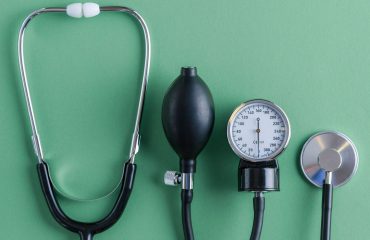
In today’s globalized world, the importation of medical devices plays a crucial role in ensuring access to innovative healthcare solutions. Turkey, with its burgeoning medical device industry and strategic geographical location, has emerged as a prominent hub for medical device manufacturing and export. However, navigating the importation process can be complex due to regulatory requirements, documentation procedures, and quality assurance standards. In this comprehensive guide, we will delve into the intricacies of importing medical devices from Turkey, offering insights and practical tips for a smooth and successful transaction.
Regulatory Landscape
Before initiating the importation process, it is imperative to familiarize yourself with the regulatory framework governing medical devices in both Turkey and your destination country. In Turkey, the main regulatory body overseeing medical devices is the Turkish Medicines and Medical Devices Agency (TITCK). TITCK regulates the production, importation, distribution, and sale of medical devices to ensure their safety, efficacy, and quality.
Identifying Applicable Regulations and Standards
Medical devices are subject to stringent regulations and standards to safeguard patient health and safety. Prior to importing, conduct thorough research to identify the specific regulations and standards applicable to the medical devices you intend to import. These may include:
- TITCK Regulations: Familiarize yourself with TITCK regulations pertaining to the classification, registration, and marketing authorization of medical devices in Turkey.
- European Union (EU) Directives: Turkey aligns its medical device regulations with EU directives. Therefore, if you plan to import medical devices from Turkey to an EU member state or a country that follows EU regulations, ensure compliance with relevant directives such as the Medical Device Regulation (MDR) or the In-Vitro Diagnostic Medical Devices Regulation (IVDR).
- ISO Standards: International Organization for Standardization (ISO) standards, such as ISO 13485 for quality management systems for medical devices, are widely recognized and may be required for importation in certain countries.
- Destination Country Regulations: Research the regulatory requirements of your destination country, including registration, labeling, and quality standards applicable to imported medical devices.
Selecting Reliable Suppliers
When embarking on your importation journey, selecting reputable and dependable suppliers stands as a cornerstone of success. In the pursuit of sourcing medical devices from Turkey, several critical factors warrant consideration. Firstly, scrutinize the supplier’s reputation through diligent assessment, evaluating their reliability, track record, and adherence to regulatory standards. Seek out manufacturers boasting a consistent history of compliance and a steadfast commitment to quality assurance. Additionally, prioritize product quality and certification, ensuring that the medical devices offered align with relevant quality standards and possess essential certifications such as CE marking for EU compliance or FDA approval for entry into the U.S. market. Moreover, insist on comprehensive compliance documentation from suppliers, including certificates of conformity, quality control reports, and regulatory approvals issued by competent authorities. Lastly, prioritize clear communication, responsiveness, and robust after-sales support when selecting suppliers, fostering a collaborative partnership that addresses any queries or concerns that may arise throughout the importation process. By conscientiously considering these factors, you can forge alliances with trusted suppliers and navigate the importation process with confidence and efficiency.
Navigating the Importation Process
Once you have identified a reputable supplier and ensured the compliance of the medical devices, the next step involves initiating the importation process. This process entails several essential steps to ensure smooth and lawful importation. Firstly, obtain the necessary import licenses and permits by thoroughly checking the import requirements of your destination country. Depending on the jurisdiction, you may need to register as an importer or obtain specific importation authorizations to proceed legally.
With the requisite licenses and permits in hand, proceed to compile all required documentation meticulously. This includes commercial invoices, packing lists, certificates of origin, product specifications, and regulatory certificates. Accuracy and completeness are paramount to ensure compliance with both Turkish and destination country regulations. Following this, coordinate with freight forwarders or shipping agents to arrange the transportation of the medical devices from Turkey to your location. Selecting appropriate shipping methods based on factors such as urgency, cost, and product nature is crucial for smooth transit. Subsequently, navigate customs clearance procedures by submitting the requisite documentation to customs authorities in both Turkey and your destination country. Providing precise information and adhering to customs procedures mitigates the risk of delays or complications during the importation process. Upon arrival, conduct thorough quality control checks to verify the integrity and compliance of the imported medical devices, ensuring conformity with regulatory standards. Finally, store the cleared medical devices in suitable facilities that comply with storage requirements, including temperature control and security measures, before efficiently distributing them to end-users or distribution channels.
Ensuring Compliance and Quality Assurance
Importing medical devices necessitates a steadfast commitment to compliance, quality assurance, and vigilant regulatory oversight. To uphold regulatory adherence and product integrity, implementing strategic measures is essential. Firstly, conduct regular audits and inspections of suppliers’ facilities and processes to ensure continuous compliance with regulatory standards and quality management systems. Secondly, establish a robust post-market surveillance system to monitor the performance, safety, and any adverse events associated with imported medical devices, promptly reporting incidents or concerns to regulatory authorities as necessary. Thirdly, prioritize continual education and training initiatives to keep abreast of evolving regulatory requirements, industry trends, and technological advancements, equipping team members involved in the importation and distribution process with the necessary knowledge and skills. Lastly, consider engaging regulatory experts, such as consultants or legal advisors specializing in medical device regulations, to provide guidance and support in navigating complex regulatory landscapes and ensuring compliance with applicable requirements. By implementing these strategies, importers can effectively navigate regulatory challenges and maintain high standards of compliance and product quality throughout the importation process.
Conclusion
Importing medical devices from Turkey offers access to a diverse range of innovative healthcare solutions, but it requires meticulous planning, adherence to regulatory requirements, and a commitment to quality assurance. By understanding the regulatory landscape, selecting reliable suppliers, navigating the importation process effectively, and prioritizing compliance and quality assurance, you can successfully import medical devices from Turkey and contribute to advancing healthcare delivery worldwide.
If you want to get more information about importing medical devices from Turkey, contact us.


